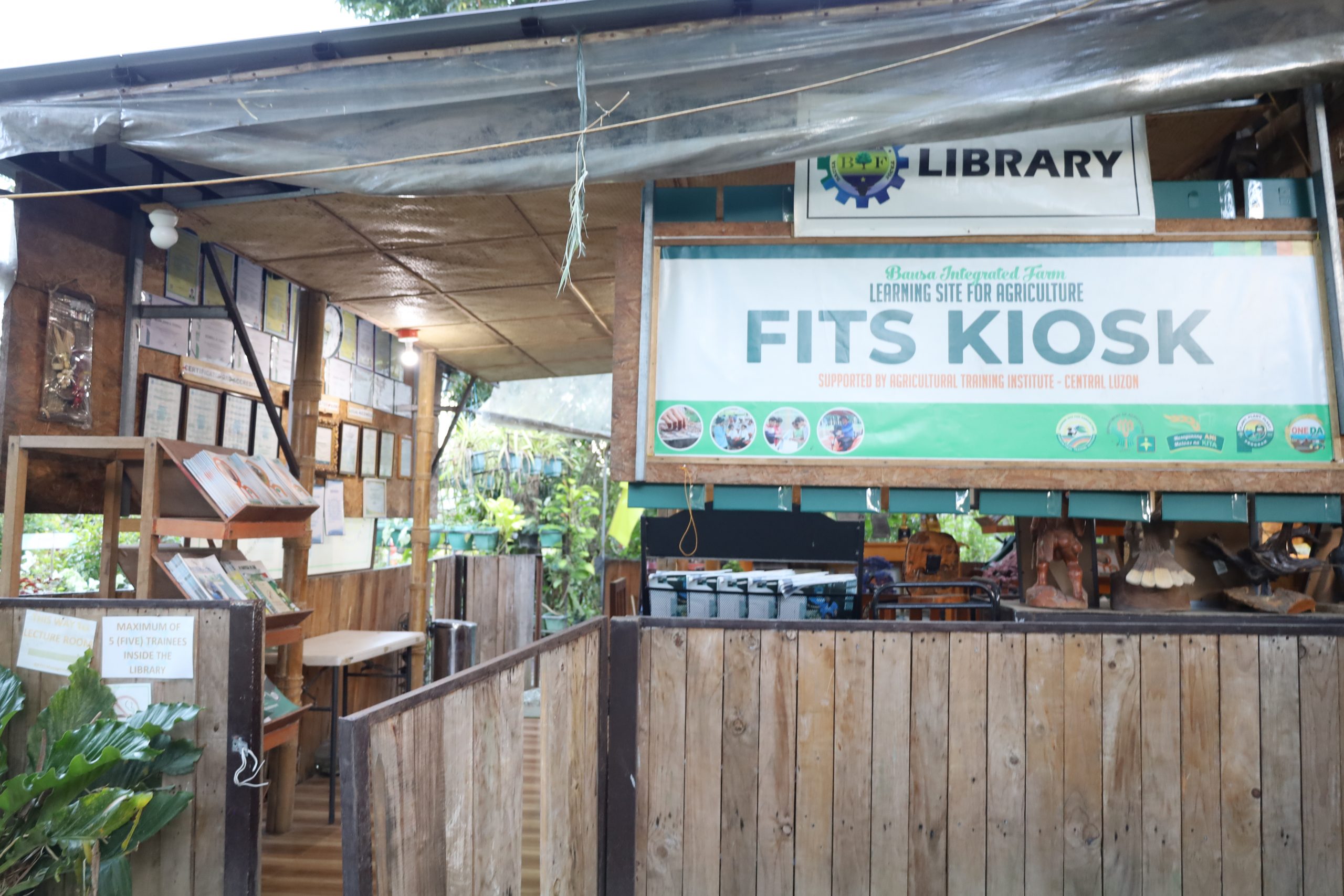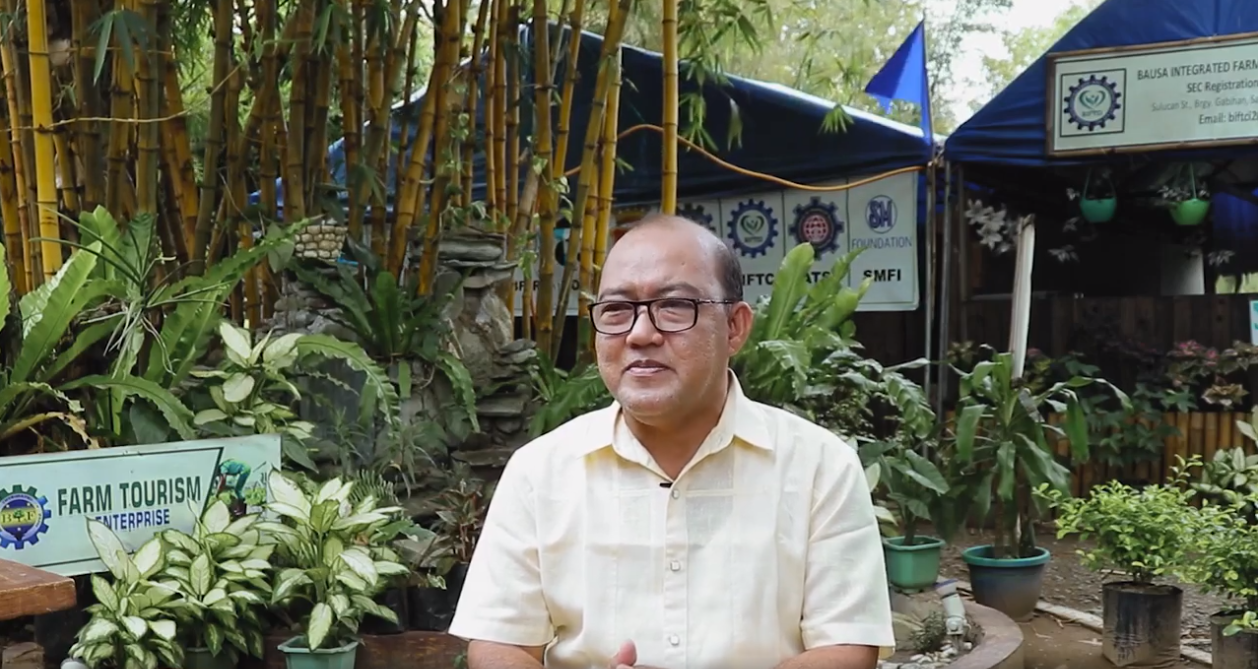
Luis Bausa, the proud owner of Bausa Integrated Farm and Training Center, is a self-made man from San Ildefonso, Bulacan.
His first love was food processing, which he shares with others as an accredited trainer of the Technical Education and Skills Development Authority (TESDA) in Community Based Training for Enterprise Development.
Using his savings from private tutoring and resource speaking engagements, Luis bought a 2,000-square-meter land in 2016.
“It’s a tribute to my mother na nagka-kaingin dati,” Luis said as he shared his inspiration behind establishing his very own farm.
He started with seven trees—five mangoes, one mahogany, and one bamboo. Since the soil was acidic, he began his farm venture by reviving its soil quality.
“Kaya dapat si farmer nagte-training and dapat nagpapa-soil analysis every after harvest kasi no matter how good your farm inputs are, kung ang lupa mo ay di maganda, hindi maibibigay at makukuha yung tamang dami ng yield,” he explained.
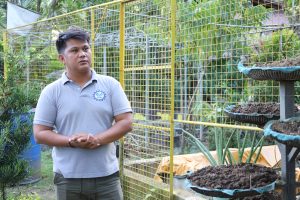
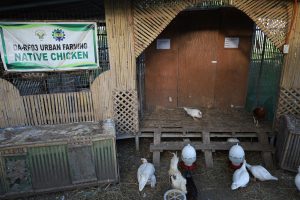
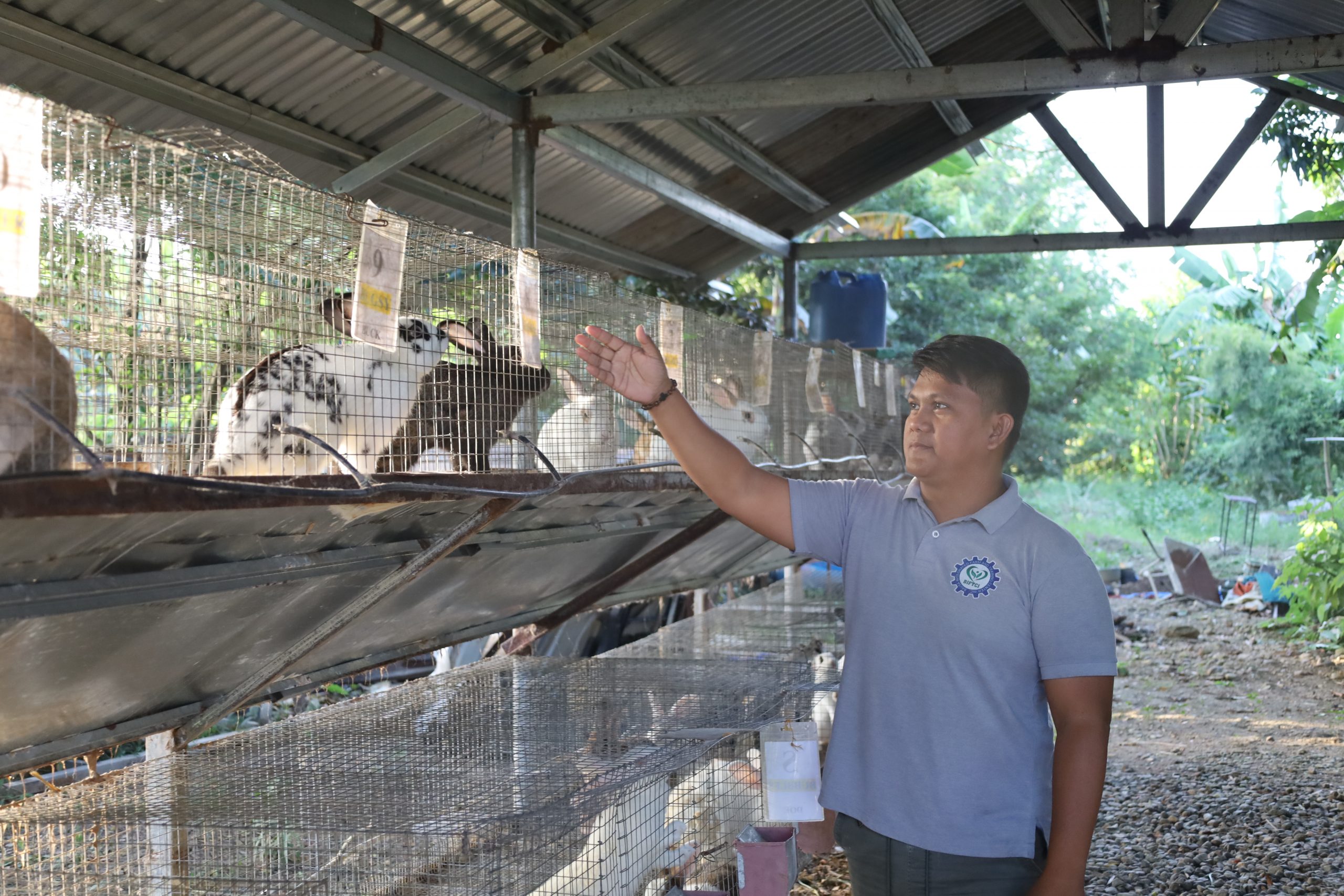
From 2,000 square meters, his land grew to 4,000 square meters which now holds various high-value crops, fruit-bearing trees, ornamental plants, native chickens, and rabbits. It also showcases new urban farming techniques, such as: vertical farming and hydroponics, which was a project granted by the Department of Agriculture-Regional Field Office (DA-RFO) III under the National Urban and Peri-urban Agriculture Program.
He also maximized his land by building treehouses that accommodate trainees and farm visitors.
By 2017, Luis was able to get his agribusiness accredited by the Department of Trade and Industry. Knowing fully well that his dream does not stop there, he applied for his farm’s certification as a learning site for agriculture under the DA-Agricultural Training Institute (DA-ATI) in 2019.
A year later, he also started registering his training center for courses under TESDA. It now offers four technical vocational courses: 1) Production of High-Quality Inbred Rice, and Seed Certification, and Farm Mechanization; 2) Agroentrepreneurship NC II; 3) Landscape Installation and Maintenance (Softscape) NC II; and 4) Agricultural Crops Production NC II.
He is also now in the process of leasing an additional 8,000 square meters of land to expand his integrated farm and training center.
A vision for the sector and a heart for volunteerism
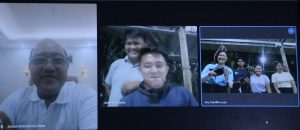
It was in 2017 when Luis discovered the Agricultural and Fishery Council through an invitation from the Municipal Agriculturist. Given his expertise in urban agriculture and trainings, he pursued becoming the Sectoral Committee on Urban Agriculture Chairperson—first at the Municipal AFC (MAFC) level then at the Regional AFC level.
By 2023, he was elected as Municipal AFC Chairperson of San Ildefonso, Bulacan.
“Gusto kong magsilbing link ng impormasyon para sa ating mga AFC, and at the same time? mailapit sila sa Municipal Agriculture Office (MAO) at iba pang ahensya. Kailangan maiparamdam ko sa AFCs ang malaking role ng magsasaka sa munisipalidad at sa bansa,” Luis said as he revealed his plans for the AFCs.
Luis also believes in the power of policies to enhance programs and develop the sector. One of the policy resolutions that MAFC San Ildefonso was able to propose to their local government was the promotion of buying organic products.
In 2022, the Municipality of San Ildefonso adopted the said resolution and issued Municipal Ordinance No. 2022-003, also known as An Ordinance Institutionalizing, Promoting and Developing Organic Agriculture in the Municipality of San Ildefonso, Bulacan and for Other Purposes. This requires the participation of schools and state universities and colleges by designating an area for organic farming as well as encouraging them to conduct field visits to organic farms in the municipality.
The Ordinance also requires business establishments in San Ildefonso to buy organic products and be certified by the MAO as organic buyers before the issuance and renewal of their business permits.
“Hindi pwedeng programa ng programa ng walang polisiya. Kailangan ma-guide at maipaliwanag ko sa mga magsasaka yung importance ng pagkakaroon ng polisiya ng isang bayan para sa mga magsasaka,” Luis explained.
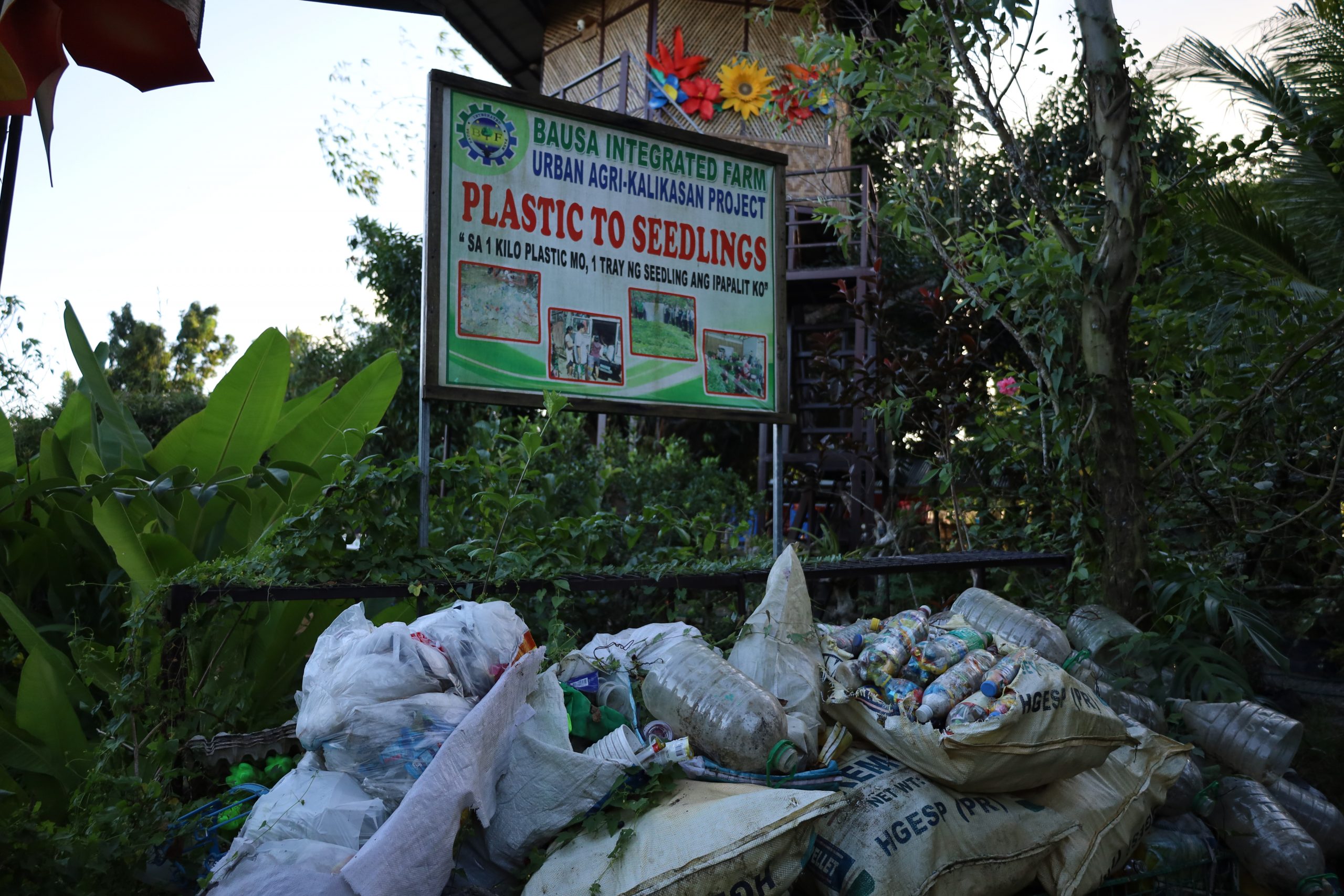
Luis also initiated a project in his farm, which is supported by the Provincial Government of Bulacan. With the “Plastic to Seedlings” Project, residents can trade one kilo of their plastic products for one tray of seedlings. This helps lessen waste and promote segregation while also encouraging households to partake in backyard organic farming and attaining the national goal of food sufficiency.
Aside from this, he also partnered with the DA-RFO III to deliver fresh produce through his private corporation’s e-cab project. This aims to help farmers sell their products and make affordable food more accessible to consumers. Products that are not sold are returned to the corporation and processed into value-added products or fertilizers.
“Pangarap ko na mabuksan ang isipan ng mga magsasaka na madami pa tayong pwedeng gawin para mabago ang katayuan sa buhay. Kaya magandang maihanda hindi lamang si farmer, kung hindi pati yung pamilya nya to establish a successful agri-enterprise para magkaroon ng pagkakakitaan lahat ng magsasakang Pilipino,” Luis said. | Joy Camille Luza
